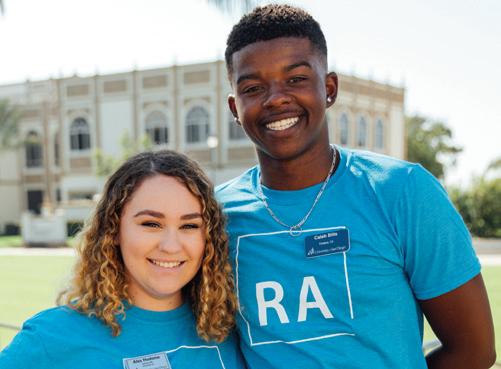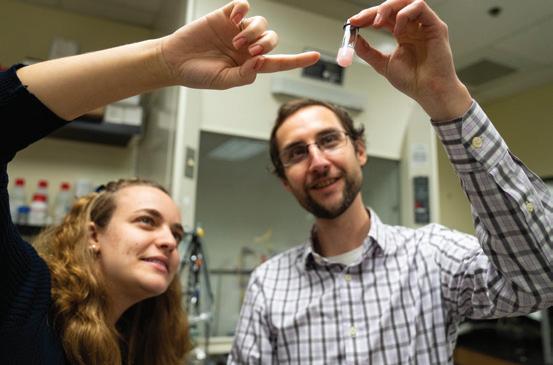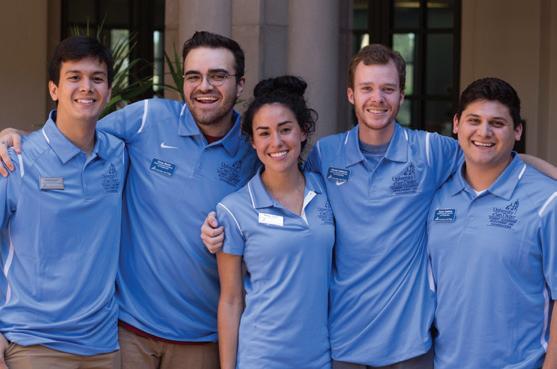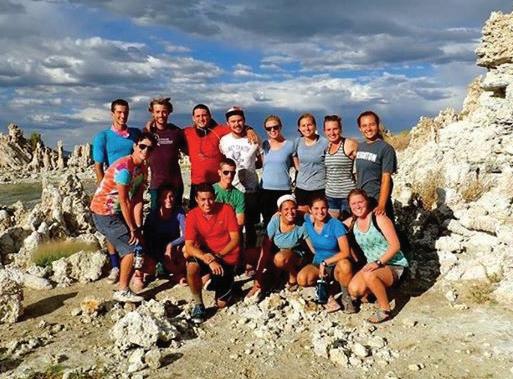Broadening Our Horizons
of Arts and Sciences

















of Arts and Sciences
















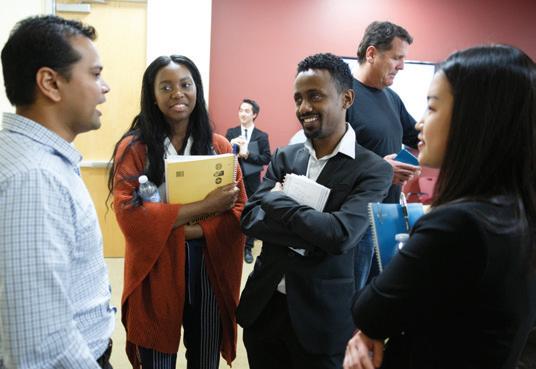
The College of Arts and Sciences marries the inspirational beauty of the arts with the unquenching thirst of the sciences.
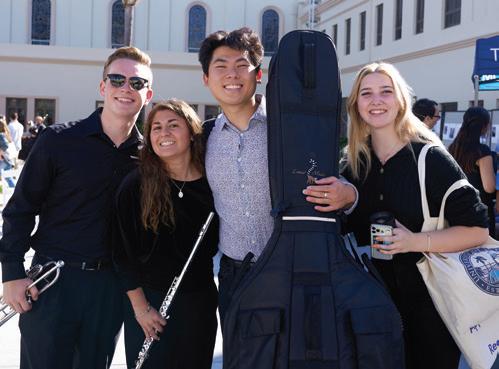

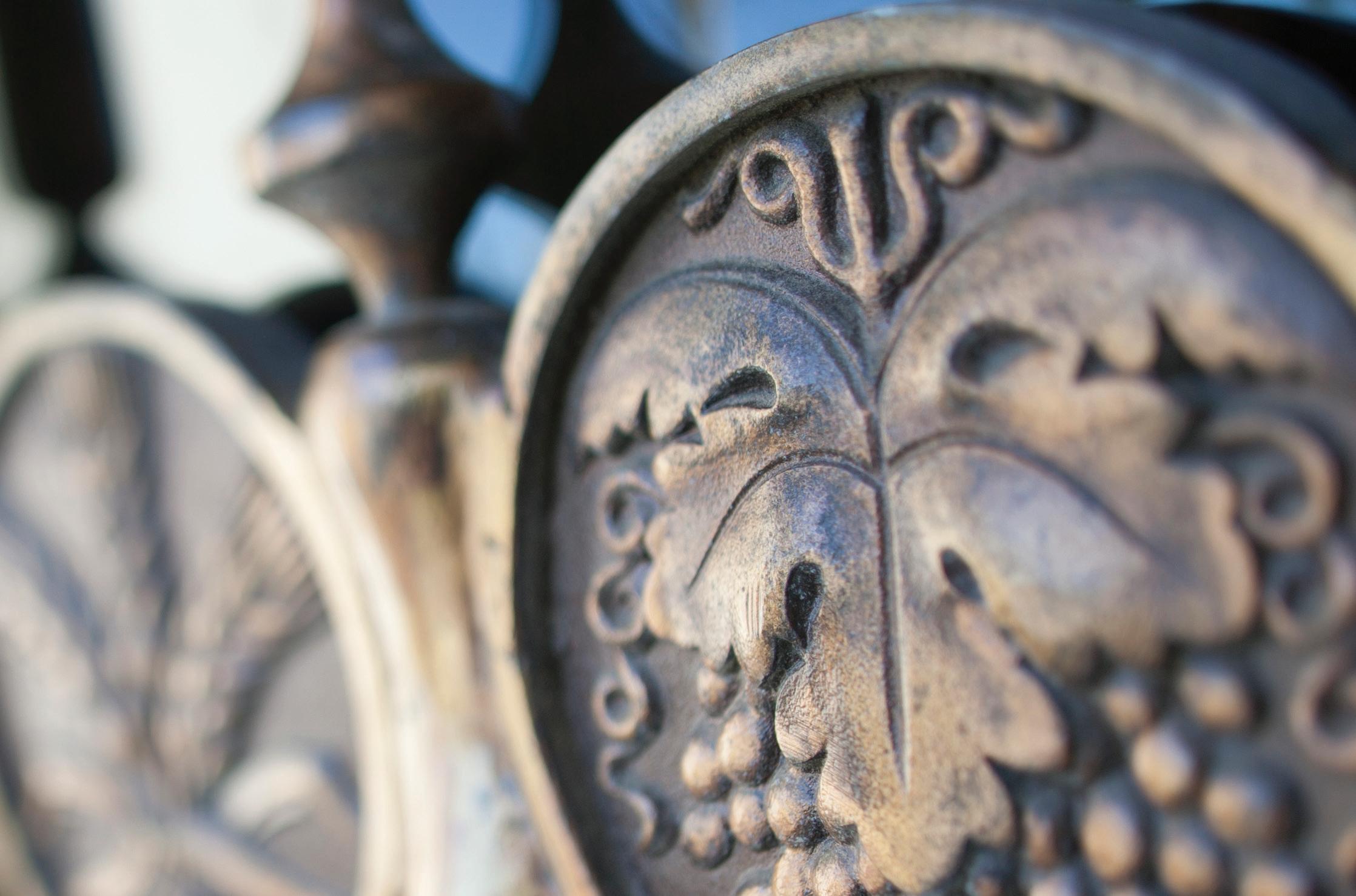
When the San Diego College for Women, followed by the San Diego College for Men, opened their doors to the first students at Alcalá Park, the courses the professors taught were firmly rooted in the liberal arts. Today, nearly 75 years later, those courses remain an integral part of the core curriculum in what became the College of Arts and Sciences.
To this day, the College of Arts and Sciences is the hallmark of USD’s intellectual vitality and serves as the archway between the University of San Diego’s past and its future. It’s because of this historical tie and this steadfast dedication to the liberal arts that the College of Arts and Sciences continues to be at the heart, in fact the very soul, of a University of San Diego education.
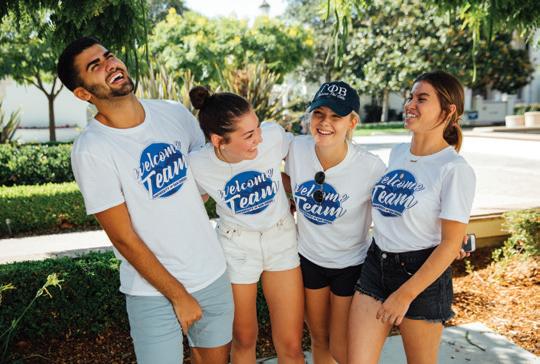

At the College of Arts and Sciences, we are a community of scholars — students, alumni, faculty and friends — who welcome and pursue a life of knowledge, innovation, collaboration and analytical thinking.
Together, students think, learn and experience across 19 departments and 12 interdisciplinary programs from theatre to theology, music to math, and physics to philosophy. We shepherd the core curriculum, preparing students to be lifelong learners who have the necessary skills to succeed in their future careers and live meaningful lives.
Our diverse, award-winning faculty members engage in research both local and global, mentoring students in the lab, the studio and the community.
As one of the few Catholic universities located mere miles from an international border, our students immerse themselves in regional cultures to see from the infinite viewpoints of our gateway city.
The college aims to establish an academic foundation for students to thrive and gain a comprehensive education, which spans the arts, humanities, natural sciences and social sciences. Through our exemplary 21st century liberal arts education and rigorous scholarship, we aspire not only to educate the mind, but also to develop students holistically as they prepare for success within their chosen professions.
We support our graduates as they build their intellectual and ethical foundations to take on life’s challenges and then navigate them with purpose.
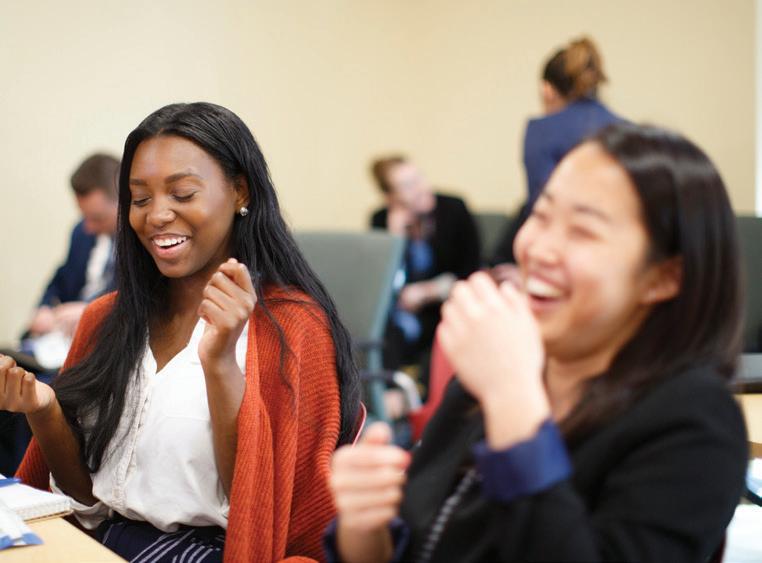

The College of Arts and Sciences is committed to providing equitable access to an expansive liberal arts education. A student dedicated to the liberal arts seeks truth, thinks imaginatively, cultivates a sense of wonder and feels empathy for people in both the past and the present. In the college, we draw from our Catholic intellectual tradition as we move forward to educate thoughtful and discerning citizens.
The college offers a curriculum designed to inspire students to study and reflect on complex and controversial issues facing our local and global communities. Drawing upon the resources provided by disciplines within the arts and sciences, students will challenge preconceived ideas and discern significant truths about reality, faith and human existence.
Dean Noelle H. Norton, PhD, joined the USD faculty in 1994. She previously served as associate dean for faculty and co-director of the Living Learning Communities program while maintaining her faculty role in the Department of Political Science and International Relations. Dr. Norton also served as department chair and director of the Honors Program from 2001 to 2008.
Since becoming dean of the College of Arts and Sciences in 2013, Dr. Norton has advocated for the importance of the liberal arts as central to a university education. She strongly believes that a liberal arts education nurtures the best qualities of our common humanity, creating compassionate lifelong learners and innovative leaders.
Most importantly, she believes a liberal arts education helps students understand who they are, what they are passionate about and how they can use their talents, skills and perspective to engage with the world.
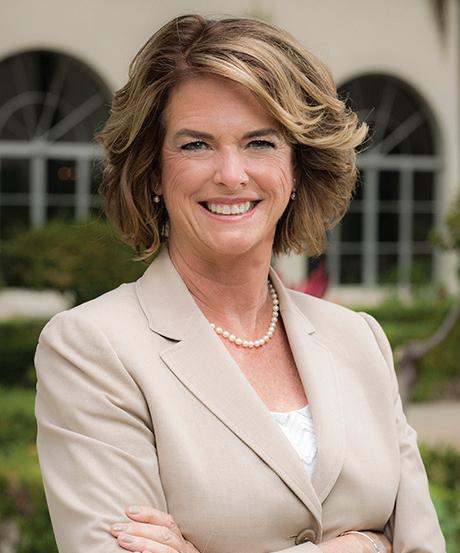
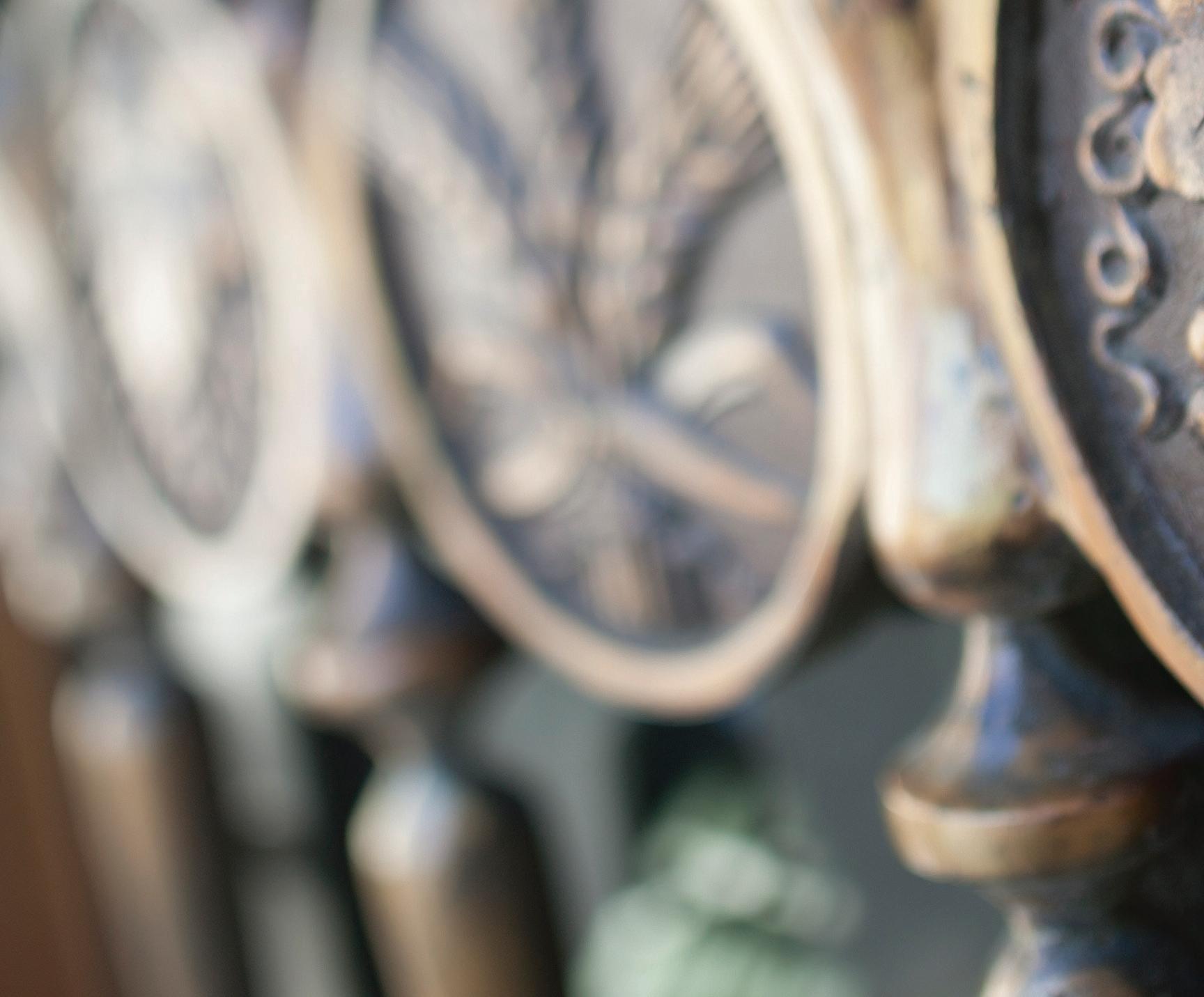
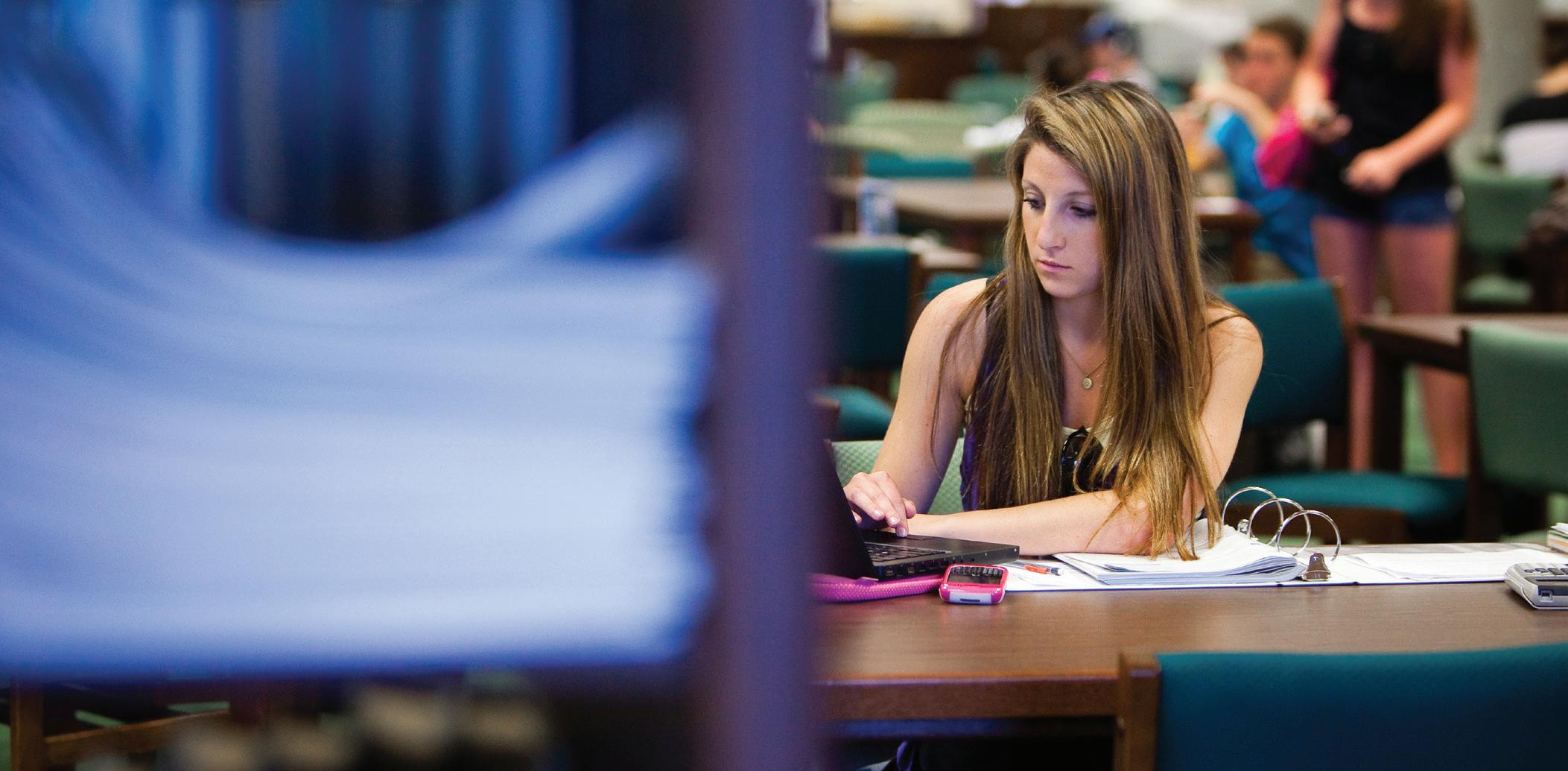

The College of Arts and Sciences is a bridge between areas of study and types of thought. Through our 21st century liberal arts educational model, we encourage students to explore a variety of disciplines and courses to enhance critical thinking and foster learning.
From architecture to art history, music and theatre, USD’s arts programs offer students the opportunity to hone their crafts while expressing their creativity through various media.
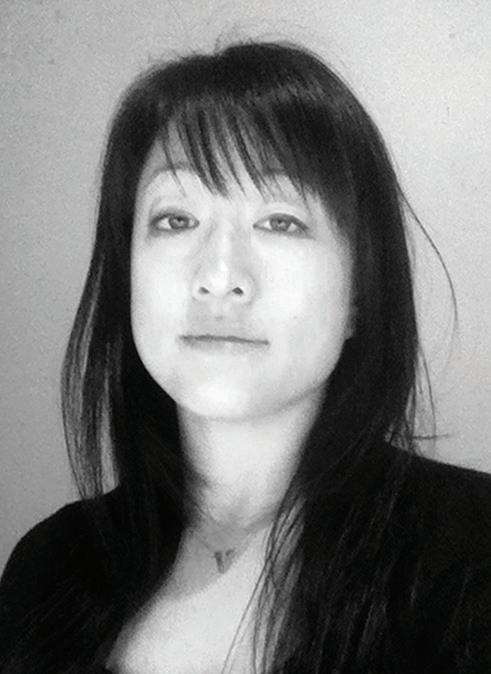

Victoria Fu is an established visual artist and Guggenheim fellow who joined the Department of Art, Architecture + Art History as an assistant professor in 2012 and earned tenure and promotion to associate professor in 2018. Fu uses media in multiple formats, including
digital video and analog film, and viewing configurations in museum and gallery exhibitions. She has exhibited over 100 art installations in venues including the Whitney Museum of American Art, Museum of Contemporary Art San Diego, 52nd New York Film Festival in NYC and IX Nicaragua Biennial. A rendering of cultural and psychological landscapes, her artwork examines the aesthetic formulas that allow the virtual world to alter human experience. Her approach, which is a perfect blending of different multimedia platforms, brings a whole new form of visual arts and level of academic excellence to the Department of Art, Architecture + Art History. Her work enhances the department’s film studies minor and paves the way to begin developing a film studies major, which will attract a new type of student to the College of Arts and Sciences and expand access to a beautiful and unique artform to entirely new audiences.
Through humanities, the study of how we understand the human experience, students develop a holistic understanding of our world and their place in it.
Philosophy and A. Vassiliadis Director of the Humanities Center

Through the work of the Humanities Center, Dr. Clack is exploring the tradition of free inquiry, an unrestrained view of the humanities. He is expanding access to the liberal arts, welcoming all voices to be a part of the conversation, and revealing the many surprising ways each field is grounded in the humanities.
Brian Clack, PhD, came to USD in September 2007, having previously taught in Oxford, England. He teaches classes on ethics, philosophy of human nature and philosophy of God. His research interests lie in the study of Wittgenstein, psychoanalysis, the conservative tradition and the philosophy of religion.
Dr. Clack is the A. Vassiliadis director of the Humanities Center. The Humanities Center is dedicated to the exploration of the human condition and the limitless ways in which human beings understand and interact with our world.
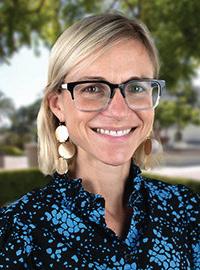

Students of the natural sciences learn the history of our physical world. From biology and chemistry to mathematics, the natural sciences provide analytical and practical learning.
Rae Robertson-Anderson, PhD, professor of physics and biophysics, studies how the shape of our DNA could be used to create autonomous, futuristic materials, such as self-healing bridges or responsive bulletproof vests, that can react to outside elements on their own — just like our DNA does.
Her lab also engineers new in vitro biopolymer systems to address critical questions in soft matter physics. Dr. Robertson-Anderson’s research brings in millions of dollars in grants, including more than $3.5 million in grants to support this research, including a CAREER Award from the National Science Foundation, an Air Force Young Investigator Program Award and a W.M. Keck Research Grant.
She is expanding access to what had previously seemed unimaginable and allows undergraduate students to explore beyond their understanding of physical material as they try to make inanimate material “move.”

By understanding our society and how we interact with one another, students of the social sciences gain a global perspective and master the tools they need to better the world.
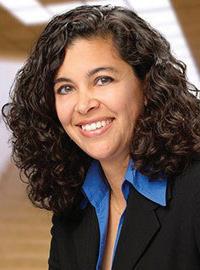
Emily Edmonds-Poli, PhD, joined the USD faculty in 2001. She teaches a number of classes, including introduction to international relations, upper division and graduate level courses on Mexico, Latin America and U.S.-Latin American relations. In addition, she teaches a summer course on politics and film in Latin America. She has also taught or team-taught several courses in the Honors Program, including Rupture and Conflict: Politics and Literature in Latin America and Politics and Media in Latin America.
Dr. Edmonds-Poli has taught international relations in the first-year preceptorial program for more than 10 years and was awarded Preceptor of the Year in 2014.
Dr. Edmonds-Poli is expanding access on both sides of the border as the inaugural director of the Chapman Family Foundation International Program, which funds travel experiences and makes international dialogue possible.
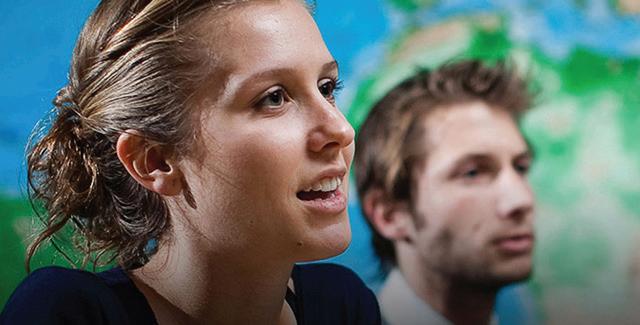
The University of San Diego has always been forward-thinking, always planning ahead, looking not just toward what’s beyond the horizon but also for new and different ways to broaden our horizons.
In planning for the year 2024 — when the University of San Diego celebrates its 75th anniversary — the College of Arts and Sciences is also taking stock, planning for the future and exploring how best to amplify the impact we have on our students, their needs and their Torero experience in the years to come.
That’s why the College of Arts and Sciences is embarking on the Broadening Our Horizons initiative.
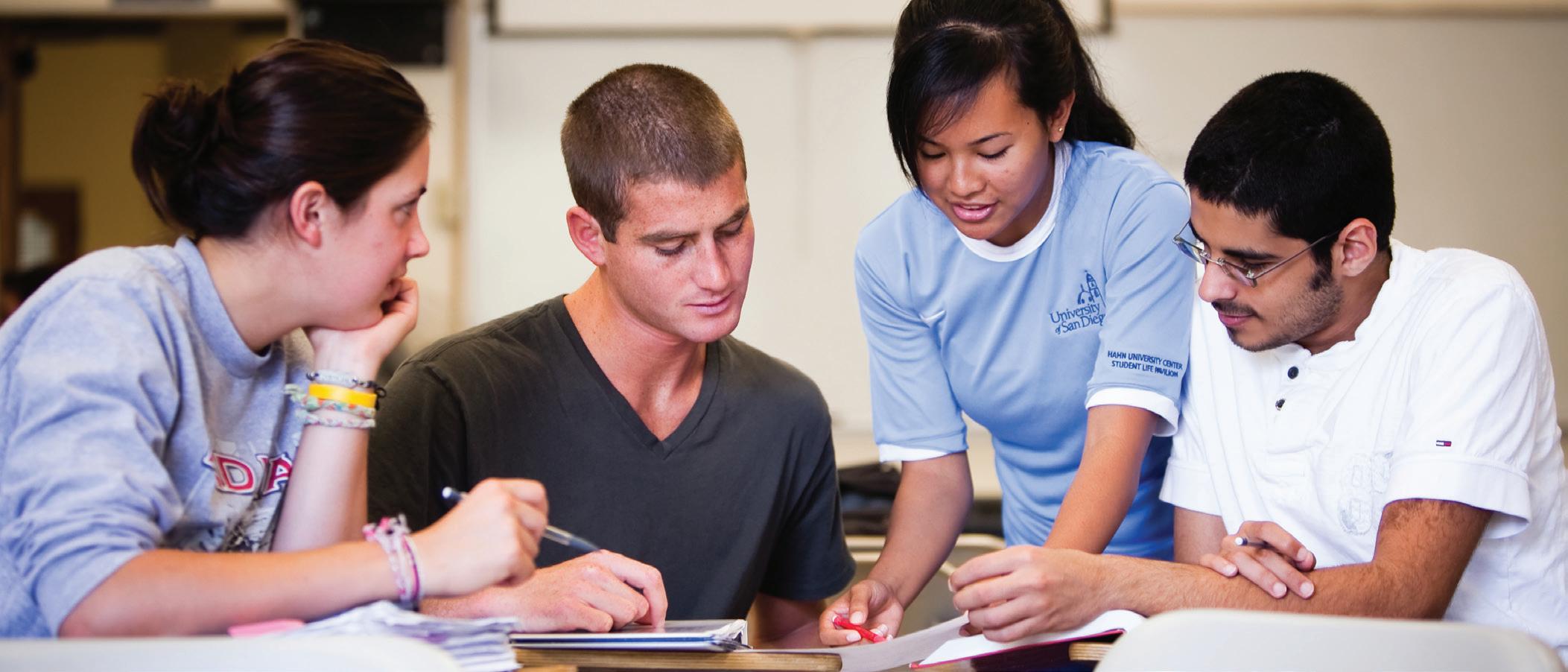
At the core of the initiative, we have outlined five main funding priorities:
Enhancing diversity, equity and inclusion
Increasing scholarship access and support
Funding capital improvements to create 21st century learning spaces
Launching high-impact approaches to teaching
Bringing the humanities into science and technology

In 2021, the University of San Diego launched what we call The Horizon Project, a strategic plan that outlines concrete steps to ensure that efforts to achieve excellence and to affirm racial justice are unequivocally woven into the fabric of our institution.
The College of Arts and Sciences is proud of the work it has done in the area of diversity, equity and inclusion. Currently, the college continues to lead the way toward greater diversity with 62 tenured or tenure track faculty members of color representing 28 percent of the total college faculty. We aim to increase the percentage of tenure-eligible faculty members of color to 40 percent by 2025.
Now, the college is excited to build on that momentum.
Therefore, as part of a multiyear hiring strategy, the College of Arts and Sciences hired 14 new faculty members in three thematic clusters: climate change and environmental
justice, technology and the human experience and international borders and social justice.

These clusters are designed to attract a diverse set of scientists, artists, humanists, social scientists, theologians and mathematicians who will participate in campus and community collaborations with interdisciplinary, pedagogical approaches that engage the community. The college endeavors to assemble a cohort of teacher-scholars who will offer a strong contribution to the diversity and excellence of USD through teaching, scholarship, service and collaboration.
Through a deep understanding of the broad and expansive human condition, students can develop into compassionate and ethical leaders within the community and complex society.
In keeping with our dedication to a liberal arts education — and as a way to enhance diversity and equity and achieve
excellence in inclusion — the College of Arts and Sciences seeks to establish an endowed professor of ethnic studies/ Africana studies in the Department of Ethnic Studies. This professor would bring an expertise in sociology or political science. This endowment would provide students with a greater learning experience and understanding of different cultures and communities — and valuable academic knowledge combined with life skills that will help them build meaningful connections outside the classroom.
Our core curriculum is designed to help all students think deeply about how diversity and inclusion should be integrated into all learning experiences. We commit to remaining vigilant about supporting the liberal arts in a way that reduces racism as we prepare students to engage with the world.

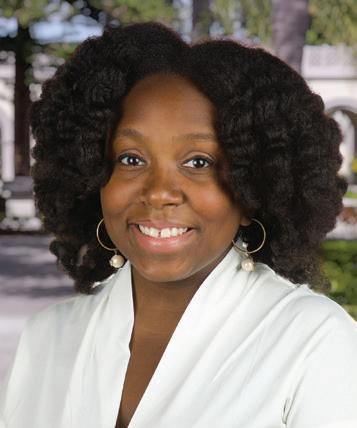
The enthusiasm that interdisciplinary Black women’s historian Channon Miller, PhD, has for her field of expertise is boundless. In Dr. Miller’s courses— American Women in History, African American History and African American Women’s History—she explores the issues affecting the Black community through the eyes of Black lives and what the path forward might look like.
“It is my hope that students within my classrooms understand how vital interrogating racial inequities, as well as hearing and elevating the voices of the marginalized, is to their present and futures,” says Dr. Miller.

Education changes lives. There are studies that show educated people are in better health, experience less anxiety and even live longer lives. Now take those facts and combine them with the power, meaning and value of a USD education — we must be able to provide our unique Torero experience to more students.
To help make education possible for many of our students like our firstgeneration students, our students of color and our students facing economic crises, USD and the College of Arts and Sciences is making it a priority to enable more access through scholarships that are available to serve immediate needs.
Over 75 percent of our students receive scholarships or some other form of financial aid or assistance. This number has skyrocketed in recent years in our effort to make a high-quality, liberal arts, faith-based education more accessible to students who are not only academically stellar but also diverse. Your support will help recruit diverse cohorts of the most talented students
year after year and cover tuition and program fees, housing and board, school supplies and materials.
As an institution, it’s our responsibility to make certain our students leave USD prepared to tackle the world’s challenges. The gift you make can alleviate financial strain for a student right away — and give them the lifechanging gift of a USD education.

The USD College Academic Stability Fund provides students with the necessary resources and materials to succeed in their academic journey when faced with unforeseen financial emergencies or catastrophic events that disrupt their progress toward a degree.
This critical assistance is offered to undergraduate students, with a focus on those that are underserved, which aligns with the college’s continued commitment to creating an environment of inclusion and diversity that allows every student to thrive.
With a gift of $50,000 you can name an endowed scholarship. Name it to honor your family and your unique USD story.

Name it to honor an inspiring professor who helps fill a student with knowledge and wisdom. Name it in honor of a student’s scholarly pursuits. Your gift can celebrate the accomplishment of a student who completed a research project or defended a dissertation.
Name your scholarship in honor of a graduating student who continued to persevere knowing that nothing, not even a global pandemic, could interfere with earning that diploma. Your endowed scholarship will make a significant impact on students’ lives over many generations.
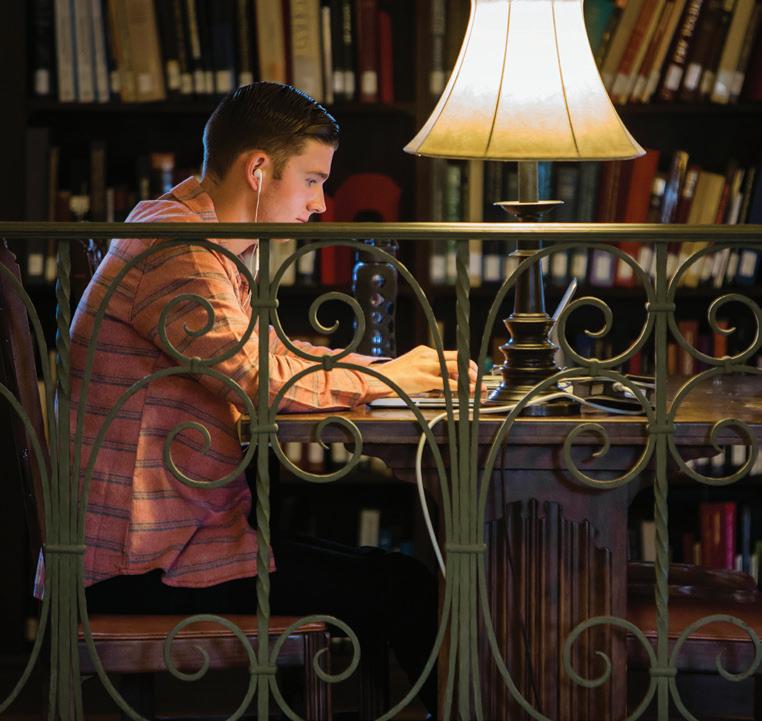
The College of Arts and Sciences values its traditional, historic buildings yet understands the need to elevate spaces with features that cater to current and future needs.
In Camino Hall, the Collaboratory (collaboration + lab) is designed to be a new home for students in the Department of Communication. The new communal space will create invaluable opportunities for future journalists and media professionals who will communicate our history in the making.
With the new Collaboratory, students will have easy access to equipment and software needed to engage with 21st century multimedia journalism, including a production and editing bay. A planned speaker series will expose students to innovative thought, ideas that challenge their assumptions about communication, and experiences of alumni and experts in the field to help them broaden their understanding of how communication can be applied to their vocational interests.
The college plans to renovate the Studio Theatre to meet the current and future needs of both artists and audience members. The renovation includes installing a new wider and deeper stage area that could accommodate a broader range of theatrical productions. This new stage would include state-of-the-art rigging as well as various backstage enhancements such as prop storage and quick change areas. Also, by creating more steeply raked audience risers, we can better enhance the relationship between artist and audience. Antiquated sound and lighting equipment would be replaced with new high-tech systems. Energy-efficient LED lights would be installed. Finally, a box office, located in a new and open foyer, would create the functionality and professional ambience this elegant space deserves.
Your investment in the Studio Theatre would allow us to transform it into a professional theater designed for performances ranging from major plays and concerts to appearances by individual artists of national and
international acclaim. It would also allow the College of Arts and Sciences to strengthen its technical theatre program, boost our recruitment efforts and attract the country’s talented thespians who aspire to become stars in Hollywood, on Broadway or anywhere in between.
Jesse Perez, director of The Old Globe and University of San Diego Shiley

Graduate Theatre Program, is an actor, director and choreographer/movement director who trained at Julliard. Perez is reshaping the program based in part on his experiences in the industry as a Mexican-American from East Los Angeles, his rise through historically white institutions and how, through the

guidance of the right mentors, he hopes to bring diversity to the performing arts.
Other theaters and actor training programs across the nation are following his lead and striving to do the same in the wake of “We See You, White American Theatre,” a document that calls out all systemic racism that exists in the industry. The document inspired Director Perez to create a Social Justice Action Plan that holds the MFA program accountable to being an all-inclusive training program.
play performed in the 34 years since the program was established.
Perez says when he recruits for the Old Globe and University of San Diego Shiley Graduate Theatre Program, consistently ranked in the world’s top 10 best drama schools (The Hollywood Reporter), he’s not looking for actors who take the classical approach to classic plays by William Shakespeare.
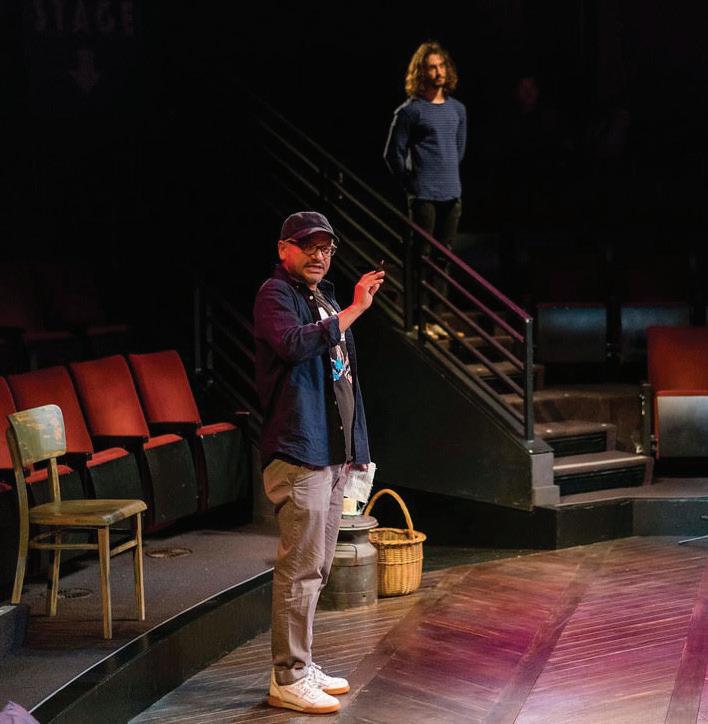

“I’d love to see more diversity in casting choices; for example, a properly cast Cleopatra. That really rocks my world,” Perez says. “We have to start questioning what we’re doing with this classical text,” he continues. “And if you’re casting an all-white production of Lear , you better have intention because I don’t believe that reflects America. It doesn’t reflect anywhere.”
He started investigating USD’s program — the way it’s taught, what it teaches, what’s in the curriculum, what’s considered a classic, what the alternatives to those classics are and why there hasn’t been a single BIPOC
The College of Arts and Sciences is always looking for ways to enhance the way students learn by providing new,
different and altogether unique ways to put the lessons they’re being taught in class to work in real-world situations.
The Department of Psychological Sciences is the largest department in the College of Arts and Sciences with two popular majors: psychology and behavioral neuroscience. The exponential growth in the number of students in the department is directly linked to the addition of a major in behavioral neuroscience, currently the fastest growing major in the college.
To achieve the learning outcomes and prepare students for careers in these fields, both majors include a curriculum that builds upon the knowledge and hands-on skills students need to succeed in a variety of professions. Support for experiential activities is imperative — not only to prepare students for the workforce but also to give our students a competitive edge when applying to graduate programs.
To meet overwhelming demand from our students, the Department
of Psychological Sciences developed two new capstone courses: Advanced Research Methods Behavioral Neuroscience Capstone and Advanced Research Methods Conditioning and Learning Capstone.

These courses require specific supplies and instruments to create experimental design paradigms, for example, that put our students at a competitive advantage to their peers at other universities. The department is working to expand its budget to afford supplies that improve the quality of education in the program.
Experiential, hands-on approaches are an essential part of student success in the STEM

curriculum and are particularly important for the retention and success of underrepresented student populations such as women, students of color and veterans.
For our psychology and behavioral neuroscience majors, experiential learning might include the ability to design and conduct research in the discipline, and high-quality laboratory experiences, which are essential to our students’ education at USD, but are currently lacking because of the lack of funding.

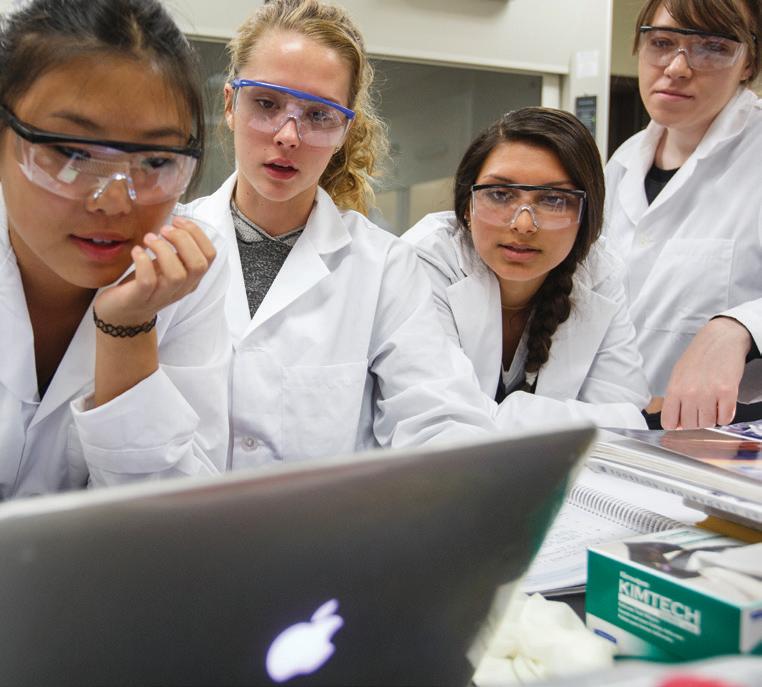
The department needs funding for the equipment, supplies and staffing for a new learning laboratory classroom, which will be used to expose students to techniques and approaches used in psychological and behavioral neuroscience research.

As a neuroscience associate professor, Jena Hales, PhD, aims to engage students in asking fundamental questions about how we think, learn, move and experience the world around us.
“Within the classroom, we want to provide our students with the opportunity to not only ask questions, but also conduct hands-on investigation of the mechanisms and functions of the nervous system,” she says. Her courses include Biological Psychology, Behavioral Neuroscience and Advanced Research Methods/Laboratory in Behavioral Neuroscience.
“There is still so much that is not yet understood about how our nervous system works,” Dr. Hales adds. “In using experiential, laboratory-based learning techniques, our students become scientists.”

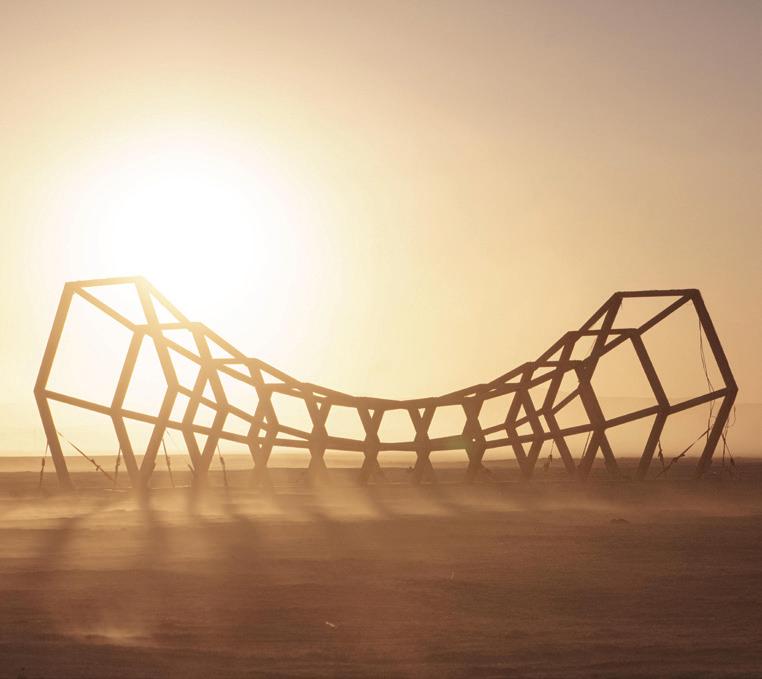
To the traditional offerings upon which its stellar reputation is built, the College of Arts and Sciences is providing contemporary programs, unconventional opportunities and curricula that are honed to be sharper than ever before. Two of those new areas of focus include technology and the human experience as well as ethics and data science.
Founded in 2016, the college’s Humanities Center is dedicated to the exploration of the human condition and the limitless ways in which human beings understand and interact with our world. The Humanities Center serves as an incubator — a meeting point between the fields of humanities and the natural sciences. As part of its ongoing programming in the field of critical technology studies, USD’s Humanities Center has envisioned a broad-based and multidisciplinary exploration of the human and social dimensions of artificial intelligence (AI).
Given the array of disciplinary perspectives from which big data, artificial intelligence and humanity may be approached, the College of Arts and Sciences plans to offer courses examining the relationship between ethics and data science. The areas of study will include but are not limited to the topics of machine learning, misinformation, policing and surveillance, transhumanism, identity and systems of oppression, and artistic, literary, and cultural considerations of data. Technological justice, particularly as it relates to race and racism, will be an inherent focus in each one of these topics.

In keeping with our tradition of robust interdisciplinary liberal arts education, we remain committed to state-of-the-art research including artificial intelligence technologies and data studies insights. Adding expert knowledge to this emerging discipline will also advance our ability to bring understanding to the moral and ethical complexity of the issues around AI and data studies, what it means to be human in a technological society, and how these forces impact our daily lives.
As a way to ensure ethical and compassionate activation of AI and data studies, the College of Arts and Sciences seeks to establish an endowed professor of artificial intelligence/data studies, which will be housed in one of USD’s two foundational majors: philosophy and theology and religious studies. All undergraduate students are required to take courses in these two areas as part of the core curriculum.
This endowed professorship will provide students with a broad learning experience and understanding of different applications and outcomes within global
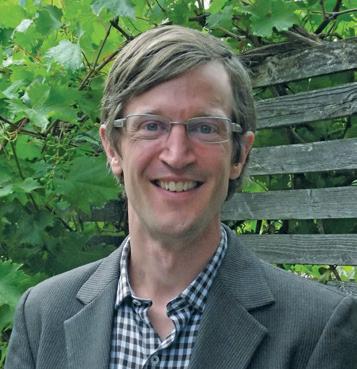
Sophisticated technologies like artificially intelligent systems are increasingly prominent and, accordingly, raising big questions surrounding autonomy, justice and moral responsibility. Daniel Tigard, PhD, who specializes in the areas of ethics and philosophy, brings his expertise to the college to tackle these complex issues head-on with students.
He poses questions like: How can we promote human values in a world where machines decide and act on their own? Is technology still just a tool or do some systems deserve rights and respect? Who or what can be held responsible when AI causes harm or when AI benefits us?
“At USD, we will meet these unprecedented challenges by preparing students to identify and address questions of how we should live with emerging technologies,” says Dr. Tigard.
communities — and develop leaders ready to negotiate the new frontier of artificial intelligence and data studies.
You can make a tremendous impact upon the future of the College of Arts and Sciences as we broaden our horizons.
By building upon our reputation as a leading liberal arts institution, your investment will help the College of Arts and Sciences continue its momentum to attract bright, driven students who will attain a practical foundation for becoming holistic, well-rounded, compassionate individuals, educated in mind and spirit.
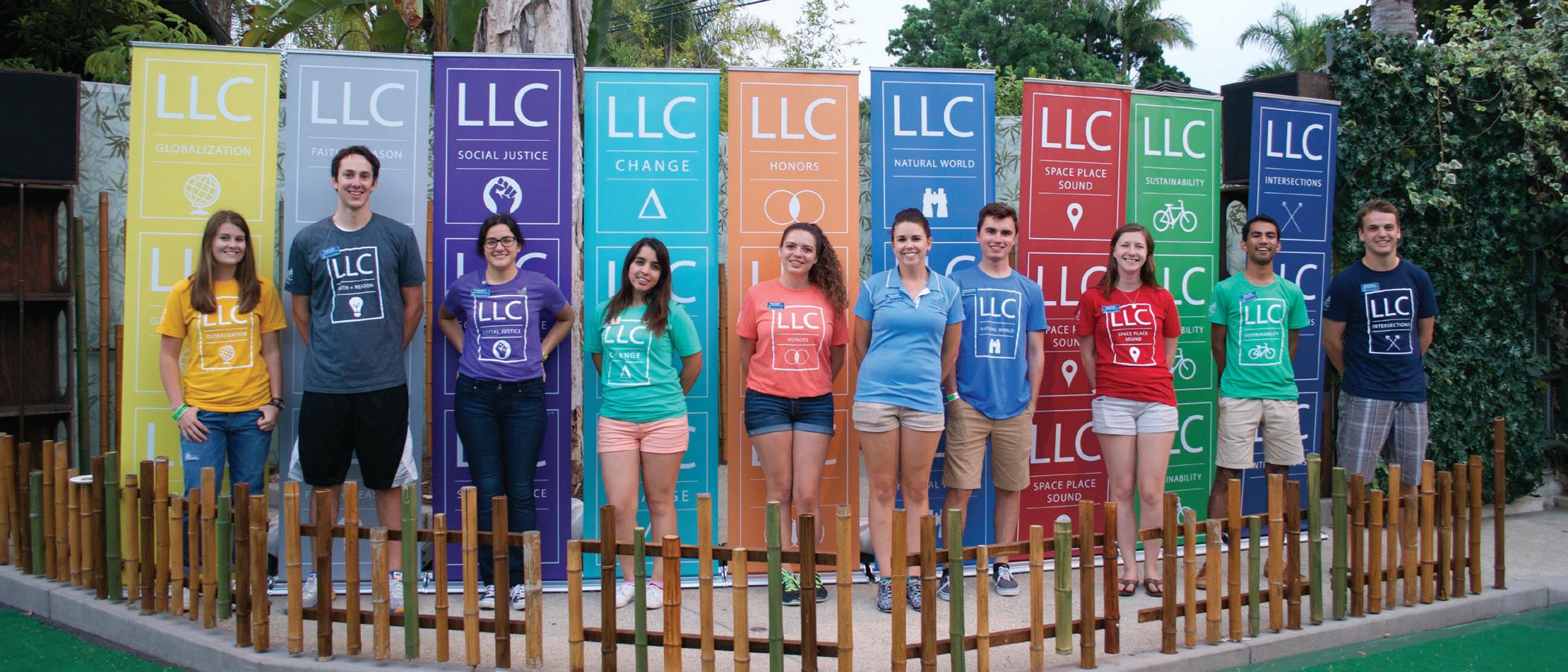
The College of Arts and Sciences provides our students with the intellectual footing to take on life’s work and the ethical basis and compassionate world view to define it. Help us shape their bright horizon ahead.
● Name a class or center
arts, humanities, natural sciences or social sciences including, but not limited to:

Department of Communication
Mathematics
Food Studies Initiative
a professorship
access scholarship
● Contribute to the Honors Program
● Support the Humanities Center

